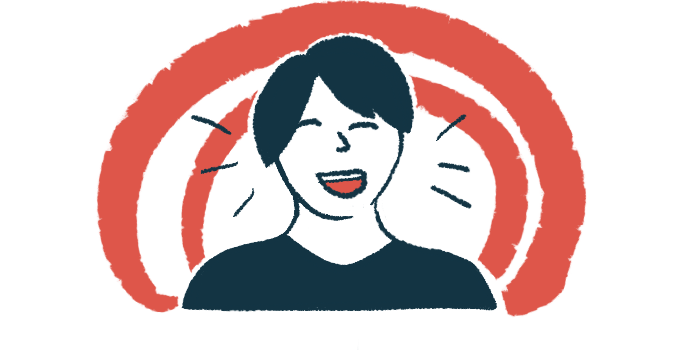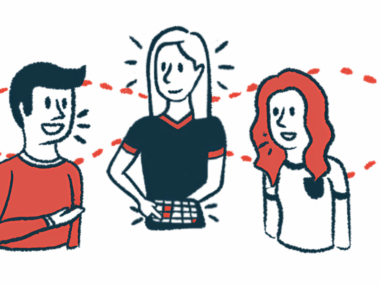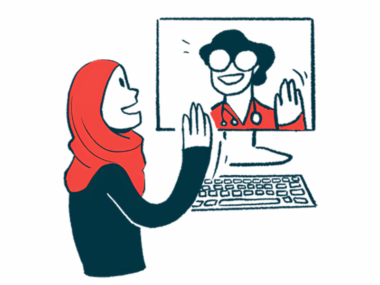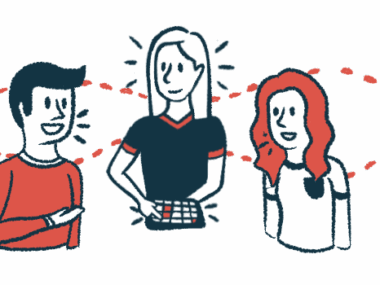Buffalo gets 1st Parkinson Voice Project therapy center in NY
University awarded 5-year, $280K grant for new SPEAK OUT! program
Written by |

The University of Buffalo (UB) now has a Parkinson Voice Project (PVP) SPEAK OUT! center, featuring its signature speech therapy program, which aims to help people with Parkinson’s disease — at no cost to them — maintain their voices, minimize any swallowing problems, and better communicate with, and stay connected to, family and friends.
With the PVP designation, the university becomes home to New York State’s sole SPEAK OUT! Therapy & Research Center, the school said. The center is housed in UB’s department of communicative disorders and services’ Audiology and Speech-Language Pathology Clinic.
A five-year $280,000 Parkinson Voice Project grant will support UB program training and pay for services, supplies and equipment, according to a university press release about the center’s establishment.
“We selected the UB Audiology and Speech-Language Pathology Clinic because of their compassion and their commitment to serving their Parkinson’s community,” said Samantha Elandary, founder and CEO of the Parkinson Voice Project.
Across the country, the 17 SPEAK OUT! therapy and research centers opened to date “will eliminate the barriers currently preventing thousands of people with Parkinson’s from receiving speech treatment,” Elandary said.
All patients in NY can access Parkinson Voice Project program at UB
As a result of Parkinson’s motor symptoms, some 90% of patients are likely to develop issues with speech and swallowing during the course of the disease. These patients need treatment and therapy or potentially face life-threatening swallowing complications.
In addition, between 70% to 80% of Parkinson’s patients also experience voice changes that others notice. For about 55%, such articulation changes can frustrate everyday verbal communication.
Early treatment can delay or lessen such changes.
The SPEAK OUT! program, which provides research-based medical therapy through engaging activities, emphasizes speaking “with intent” to transform speech from an automatic function to a more deliberate act. To improve or regain their speaking skills, patients employ a combination of daily at-home practice and regular assessments.
Mark Patterson, a SPEAK OUT! participant who became a Parkinson Voice Project volunteer, said the therapy program has “improved his life.”
“Prior to starting the program, my speech was noticeably slurred, and I was often asked to repeat myself to be understood,” Patterson said.
After only two one-on-one therapy sessions, Patterson had people telling him his speech was more clear. Now, he said he enjoys attending the group sessions.
“It has been good to know others who face the same challenges I do, and we encourage one another to practice every day,” Patterson said.
We get phone calls every day from all over the state to either start the program with us for an initial evaluation or from people who have received the individual therapy with another speech-language pathologist and are now looking to join a group for the second part of the therapy program.
The UB program already has 58 members, 24 of whom started this semester. It’s led by Laura Roberts, a clinical assistant professor, and Kalia Stipancic, an assistant professor, both in the communicative disorders department.
“We get phone calls every day from all over the state to either start the program with us for an initial evaluation or from people who have received the individual therapy with another speech-language pathologist and are now looking to join a group for the second part of the therapy program,” Roberts said.
These program therapy sessions are available in person or via Zoom at no cost to state residents with a diagnosis of Parkinson’s or related movement disorders. Parkinson’s, a progressive neurodegenerative disorder, is thought to affect more than 1 million U.S. residents.
The University of Buffalo will conduct efficacy research on the therapy — as do other universities where SPEAK OUT! programs exist.
To receive specialized instruction about SPEAK OUT! therapy and research and learn about efficient business practices and effective patient outreach, UB clinical and research faculty will visit PVP headquarters in Richardson, Texas. There, they’ll also partake in master classes with Parkinson’s patients and receive hands-on training.
“Our goal is to provide access to SPEAK OUT! services to people who may not otherwise have access in their geographical area or due to disability accessibility issues and financial constraints,” said Roberts.
In July, the SPEAK OUT! Therapy & Research Center at Northeastern University in Massachusetts announced a $280,000 PVP grant for training, services, equipment and supplies. The center opened in 2021 with support from the PVP, which launched its SPEAK OUT! program in 2010. Northeastern became the 16th U.S. university to run a Therapy & Research Center for patients.
The PVP last year said it hopes to establish a Parkinsons Voice Project program in every state in the U.S.



